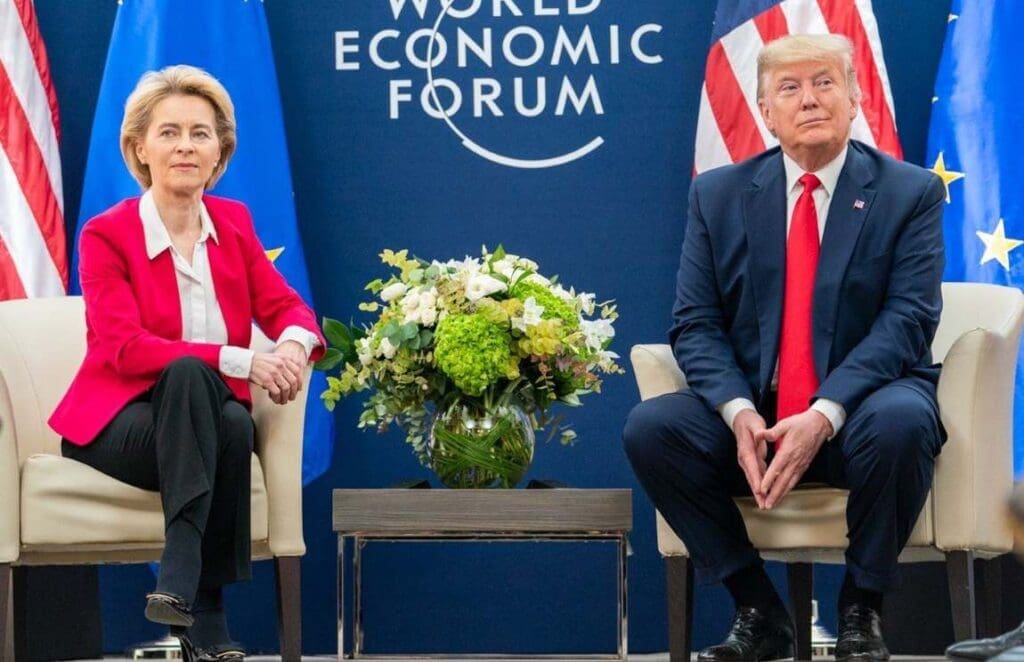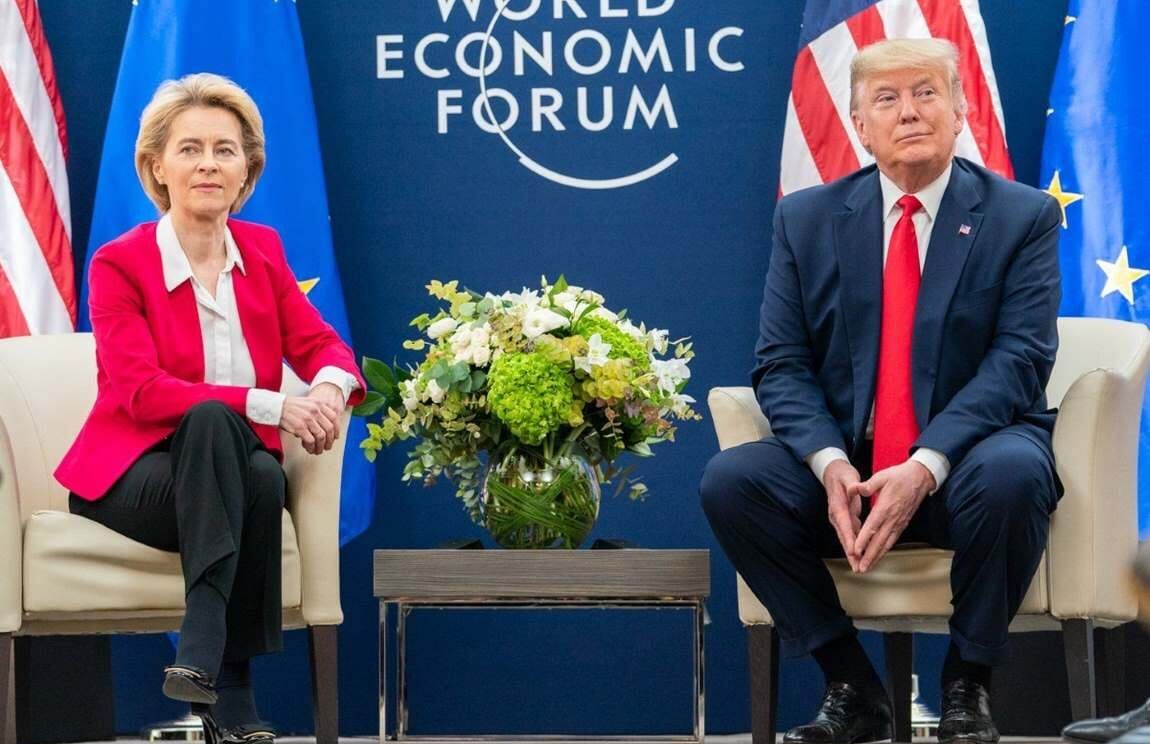OPINION | By Pier Paolo Raimondi, Catholic University of Sacred Heart, Milan
Trump’s energy and climate policies, aimed at “dominance,” may widen divides with Europe and reshape global trade and environmental priorities.
Donald Trump’s return to the White House in 2025 is expected to once again shake international politics, economics, trade, security, energy, and climate, given his political vision and his transactional approach to foreign policy.
Trump pledged a sharp pivot on energy and climate issues compared to Joe Biden, which could have profound implications for U.S. markets and international partners.
Early impact: COP29 and Trump’s influence
Trump’s re-election has already made waves, with U.S. negotiators reportedly struggling for influence at COP29 in Azerbaijan’s capital, Baku.
The talks, largely focused on climate finance, and the summit’s final agreement, widely criticised as falling short of global climate goals, unfolded under the shadow of Trump’s climate stance. A long-time sceptic who has dismissed climate change as a hoax, Trump’s team has already signalled plans to withdraw the US from the Paris Agreement again.
During his first term, Trump also halted US contributions to the Green Climate Fund, a key UN mechanism for supporting climate initiatives in developing nations.

Consequences for the European Union
For the European Union, the new American energy approach will affect energy security, given the essential role of US liquefied natural gas (LNG) imports in the EU gas market following Russia’s war in Ukraine. It is set to influence climate policy in international negotiations.
During his campaign, Trump confirmed he would further exploit American oil and gas reserves, which he calls “liquid gold,” to provide the world’s lowest energy costs by cutting them by 50 percent within a year for American consumers and to pursue “energy dominance.”
To achieve this, he plans to cut environmental regulations which he claims are unnecessary barriers to US energy resources, and accelerate permitting for land leases both on and offshore for exploration and production activities.
US oil production and global market dynamics
This policy follows the “Drill, baby, drill” mantra, which characterised Trump’s previous term. Currently, the US is already the world’s largest oil producer (13 million barrels per day), surpassing countries like Saudi Arabia (9.5 million) and Russia (10.5 million).
However, it seems unlikely to see private energy companies will increase production further drastically, given their focus on financial returns and uncertainty over global oil demand.
What is certain is that a reduction in American energy prices will widen the price gap across the Atlantic, with severe potential repercussions on European industrial competitiveness and political cooperation.
If US energy prices fall, American industries will benefit from lower production costs, gaining a competitive edge over European rivals currently burdened by higher energy expenses with the risk of de-industrialization in Europe as outlined by the Draghi Report.
Enhancing US LNG’s role in global markets
At the same time, Donald Trump aims to enhance the role of US LNG in the global gas markets. The President-elect is expected to lift the pause on authorising new LNG export projects imposed by the Biden Administration in January 2024.
This development could create opportunities for deeper transatlantic energy trade, though some obstacles may arise. Trump will likely remind EU partners of his previous warnings about their overdependence on Russian gas and will push for higher US LNG cargoes to the continent.
LNG trade could potentially become a bargaining chip in transatlantic trade relations, with increased US LNG to Europe serving as a way to deter Trump from imposing hefty import tariffs on EU companies and goods – a strategy suggested by President of the European Commission Ursula von der Leyen. This approach would replicate the 2018 deal between Trump and Von der Leyen’s predecessor Jean-Claude Juncker.
Since then, more US LNG has reached European shores, driven largely by the 2021 and 2022 unprecedentedly high European gas prices that attracted US LNG. However, companies are reluctant to sign new long-term contracts due to demand uncertainty caused by higher renewables and lower industrial gas demand.
Environmental regulations and barriers to US Exports
Additional obstacles may emerge if Trump removes and relaxes environmental regulations, such as those regarding methane emissions from oil and gas operations.
This would disadvantage US energy supplies since the EU had adopted its Methane Regulation, addressing methane emissions from imports.
Domestically, Trump has openly criticised the US Inflation Reduction Act (IRA), which provided billions in tax subsidies and credits to accelerate low-carbon solutions and enhance US manufacturing capacities in clean technologies.
The repeal of clean energy policies
In this vein, Trump has announced intentions to repeal the IRA and remove tax credits, starting from those for electric vehicles. Although a total overhaul of federal credits is unlikely due to clean investments in Republican states, a policy revision will slow down the transition – affecting EU-US partnerships such as in the case of wind energy.
This shift, along with the return of Trump’s “America First” policy, will once again impact international negotiations and cooperation, while further backlash could occur if he also decides to withdraw from the United Nations Framework Convention on Climate Change (UNFCCC).
A stress test for transatlantic relations
Trump’s election win raises concerns about the US’ commitment and consistency to the global energy transition, which is beginning with climate finance.
The EU must allocate adequate resources to support developing countries in their transition if it is truly committed to leading the global energy transition.
The election of Donald Trump represents a significant stress test for the transatlantic partnership. In this scenario, the EU must develop a clear and consistent energy and climate strategy for both itself and its global partners to follow.
***
Pier Paolo Raimondi is a Researcher at the Energy, Climate and Resources (ECR) Program of the Istituto Affari Internazionali (IAI) and a PhD Candidate at Catholic University of the Sacred Heart, Milan. His main research activity is related to energy markets, energy policy as well as energy geopolitics and geoeconomics. He holds a Master’s degree in International Relations and a Bachelor degree in Political Science from University of Milan.
Originally published under Creative Commons by 360info™.
Article Source: 360info | DOI: 10.54377/3bd2-adfa
Featured image credit: Shealah Craighead | Official White House Photo / Public Domain




